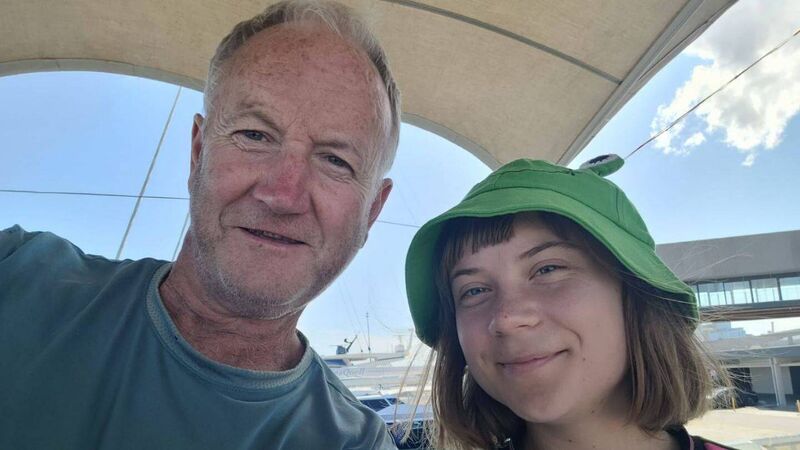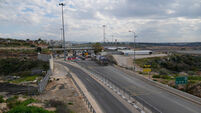'We just wanted to help': A Cork man’s journey from Cobh to captivity in Israel

Paddy O'Donovan aboard the Global Sumud Flotilla to Gaza with Greta Thunberg.
Watching the slaughter and starvation of children in Gaza on the news, while his own grandchildren played safely nearby, made Paddy O’Donovan feel that he had to do something.
Although never political before, the 61-year-old experienced seaman and retired gravestone maker from Cobh, Co Cork, saw the Global Sumud Flotilla was looking for volunteers to crew boats carrying aid to besieged Gaza and decided to apply.
















